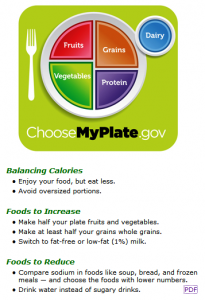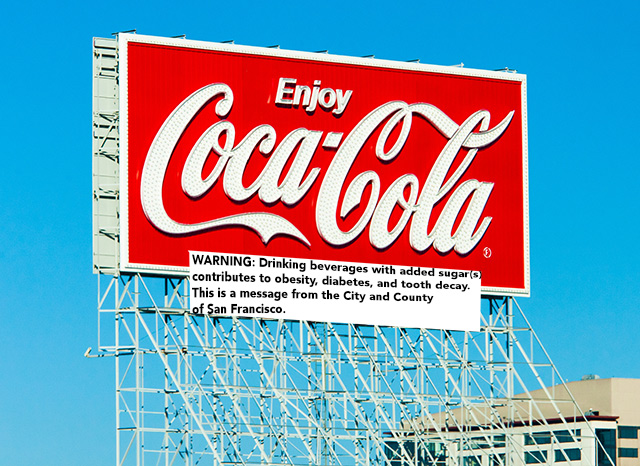I wrote this piece for The Guardian in response to the New York Times article earlier this week about Coca-Cola’s funding of scientists who think obesity is more about exercise than drinking sodas:
These days, you almost have to feel sorry for soda companies. Sales of sugar-sweetened and diet drinks have been falling for a decade in the United States, and a new Gallup Poll says 60% of Americans are trying to avoid drinking soda. In attempts to reverse these trends and deflect concerns about the health effects of sugary drinks, the soda industry invokes elements of the tobacco industry’s classic playbook: cast doubt on the science, discredit critics, invoke nanny statism and attribute obesity to personal irresponsibility.
Casting doubt on the science is especially important to soda makers. Overwhelming evidence links habitual consumption of sugary drinks to poor health. So many studies have identified sodas as key contributors to chronic health conditions – most notably obesity, type-2 diabetes and coronary artery disease – that the first thing anyone trying to stay healthy should do is to stop drinking them.
Soda companies know this. For at least the last 10 years, Coca-Cola’s annual reports to the US Securities and Exchange Commission have listed obesity and its health consequences as the single greatest threat to the company profits. The industry counters this threat with intensive marketing, lobbying and millions of dollars poured into fighting campaigns to tax or cap the size of sugary drinks.
But it is also pours millions into convincing researchers and health professionals to view sodas as benign.
Just last month, the Mayo Clinic Proceedings published a study arguing that the results of national dietary surveys, such as those that link sugary drinks to type-2 diabetes, are so flawed that they constitute a major misuse of public funds. The authors report honoraria, speaking and consulting fees from Coca-Cola.
This week’s revelation of Coca-Cola’s funding of the Global Energy Balance Network is only the latest example of this strategy in action. The Network promotes the idea that to prevent obesity you don’t need to bother about eating less or drinking less soda. You just have to be more active. Never mind that most people can’t lose weight without also reducing their intake.
A reporter who looked into this group discovered that Coca-Cola had funded the research of the scientists behind it, and generously. The network’s website was registered to Coca-Cola. None of this, however, had been made explicit.
Most nutrition professional journals now require researchers to declare who funds their studies, making it possible to compare study outcomes with funding sources. Studies sponsored by Coca-Cola almost invariably report no association of sugary drinks with diabetes, they question the validity of studies that do find such associations or, as in the case of Global Energy Balance Network investigators, they find activity to be the most important determinant of body weight.
Analyses of studies funded by Coca-Cola or its trade association demonstrate that they have an 83% probability of producing results suggesting no harm from soda consumption. In contrast, the same percentage of studies funded by government agencies or independent foundations find clear linkages between sugary beverages and such conditions. Coincidence? I don’t think so.
Since March, I’ve been posting industry-funded studies with results that favor the sponsor’s interests every time I find five of them. They are easy to find. Despite pleas to readers to send me industry-funded studies that do not favor the sponsor, I hardly ever get them. Whenever I come across a study that shows no harm from sodas, I immediately look to see who paid for it.
Soda companies spend generously to convince researchers and health professionals not to worry about sodas’ health effects. But why do researchers take the money? It is too simplistic to say that they are “bought.” Industry-funded investigators say they believe the funding has no effect on the design, conduct or interpretation of their research. But research involves choices of questions, assumptions and methods. It is not difficult to carry out a study that appears to meet high scientific standards yet fails to include critical controls that might lead to alternative conclusions.
Researchers funded by Coca-Cola need to take special care to control for unconscious biases but can only do this if they recognize the possibility. Many do not. Neither do many peer reviewers or editors of scientific journals. Although food-company financial support should not necessarily bias results, it appears to do so in practice.
Industry-funded scientists resent questioning of the influence of sponsorship on the quality of their science. They charge that investigators who find adverse effects of sodas on health are equally biased by career goals, righteous zeal or anti-corporate morality. Yes, independent scientists may have biases of their own, but their overarching research goal is to improve public health. In contrast, the goal of soda companies is to use research as a marketing tool.
Disclosure is essential. If a study is funded by Coca-Cola, caveat emptor.




